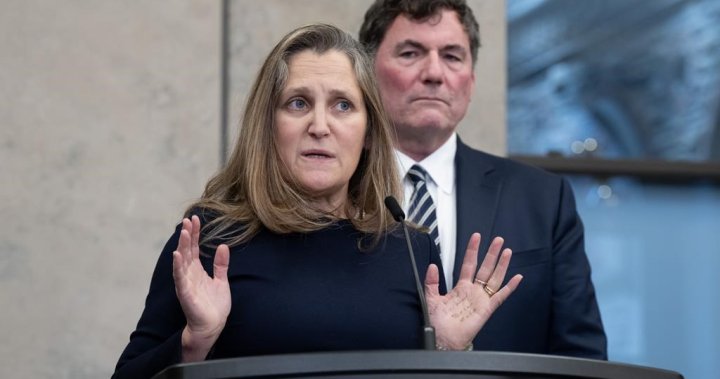
By BAGEHOT | BRIGHTON
PAUL MASON, a journalist turned Labour Party activist, was very much in evidence at the Labour conference in Brighton this week, competing with the Guardian’s Owen Jones for the title of Jeremy Corbyn’s favourite talking head. Mr Mason got a lot of grief for one of his tweets: “I really advise my colleagues in the press corps to listen to the conference. It’s a breath of fresh air and reminds me of 1980”. His colleagues in the press corps quickly reminded Mr Mason that 1980 marked the beginning of 17 years in the electoral wilderness for Labour. The breath of fresh air was a very cold wind indeed.
In fact, Mr Mason’s tweet was the political equivalent of a Freudian slip: the Corbynites are obsessed with the 1980s. Young activists who had not even been conceived when the miners’ strike happened wear badges reading “coal not dole”. Trade unionists get standing ovations whenever they mention the devastation of the 1980s. Margaret Thatcher is the gold standard in evil.
The Corbynites’ dearest wish is to relive the 1980s—the harsh clash of ideologies, the bitter industrial disputes, the decimation of the middle ground—but this time in reverse and with them in charge. The 1980s represent both a challenge and a template. The challenge lies in reversing everything that was achieved in those years. The Corbynites want to nationalise the “crown jewels” that the Thatcherites privatised: the utilities and British Rail. They want to restore the collective bargaining rights that Mrs Thatcher removed from the unions and dismantle the internal market in the National Health Service. They want to build new council houses to replace those that were sold off in the 1980s. Mrs Thatcher’s deregulation of the financial-services industry meant that London and the South boomed while the North withered. The Corbynites want to establish regional development banks to reignite business in what used to be Britain’s industrial heartland.
The 1980s is also a template because Mr Corbyn’s inner circle secretly admire Mrs Thatcher: they want to fight as hard for their class (as they see it) as she fought for hers. This will involve using many of her methods. Mrs Thatcher came to office with a detailed plan of what to do: she not only rammed through measures as quickly as the parliamentary timetable would allow but also made sure that those measures naturally produced other measures that pushed the country further in the direction she wanted. What Sir Keith Joseph, her secretary of state for industry and later for education, had called a “ratchet to the left” that had driven British politics since 1945 was replaced by a “ratchet to the right”. The Corbynites are also putting together a detailed blueprint. John McDonnell, Mr Corbyn’s shadow chancellor and in many ways the brains behind the operation, is compiling a growing collection of policy documents. The Corbynites also understand the power of the ratchet effect: nationalising one part of the railroad will inevitably lead to the nationalisation of other parts and nationalisation of one utility will create a model for nationalisation of another.
Margaret Thatcher drew up detailed battle plans to deal with opposition from both moderates inside her party (“the enemy within”) and from the trade unions. She advanced a core of party loyalists who could be moved into jobs that were once occupied by “wets”. She stockpiled coal in order to reduce the miners’ chance of doing to her what they had done to her predecessor, Ted Heath. (Among others things, he had been forced to introduce a three-day working week to contend with the electricity shortages induced by industrial action.) The Corbynites are doing likewise. Mr McDonnell has said that they are prepared to fight a tough battle against an “establishment” that will try to block their every move—for example, he has admitted that allies have conducted “war games” to show what a Corbyn government could do if confronted with a run on the pound. Mr Corbyn’s plans to restore the trade unions’ powers could be particularly important here: a Corbynite government will have a reserve army of workers, many of them employed in the public sector or in “strategic” parts of the private sector that are vulnerable to industrial action. They will be willing to come out on the streets in support if “the establishment” or “the markets” or “the media” try to blunt his radical reforms.
The Corbynites, just like Mrs Thatcher, will also make enthusiastic use of the fact that Britain is essentially an elective dictatorship. In America the president is constrained by the power of Congress and the Supreme Court, which means that there is a limit on the damage that can be done by even the most disaster-bent president. In most European countries there are fixed constraints on the power of the executive. But in Britain a government with a solid majority knows no bounds. Mrs Thatcher used this fact to impose a radical agenda on the country in the face of opposition within her own party and active hostility from millions of voters. Thatcherites loudly mocked as “squishes” those who worried that this was dangerous. There is a good chance that they are about to learn what it feels like to be on the other side of elective dictatorship.
The Corbynites may well have history as well as the British constitution on their side. The 1970s saw the post-war consensus consuming itself in strikes, stagflation and general discontent. The 2010s saw exactly the same thing with the neoliberal consensus. Along with trillions of dollars of wealth the financial crisis destroyed the idea that it was worth putting up with a bit of turbulence because the turbulence would eventually deliver a higher standard of living.
Mrs Thatcher argued that only by breaking with a failed consensus could Britain offer its people what they desperately wanted: private homes rather than council homes, efficient trains rather than nationalised cattle carts, economic growth rather than conflict and stagnation. Mr Corbyn is such a powerful candidate because he is performing exactly the same manoeuvre: arguing that the only way to solve problems that really matter to people—the shortage of homes, the awful trains, the unsatisfactory economic situation—is to break with the consensus that Mrs Thatcher established in the 1980s. Given the energy and enthusiasm on display this week in Brighton and the dismal state of the British Conservative Party, the country needs to prepare for the possibility that the conflict-ridden history of the 1980s will repeat itself—this time with the boot on the other foot.








